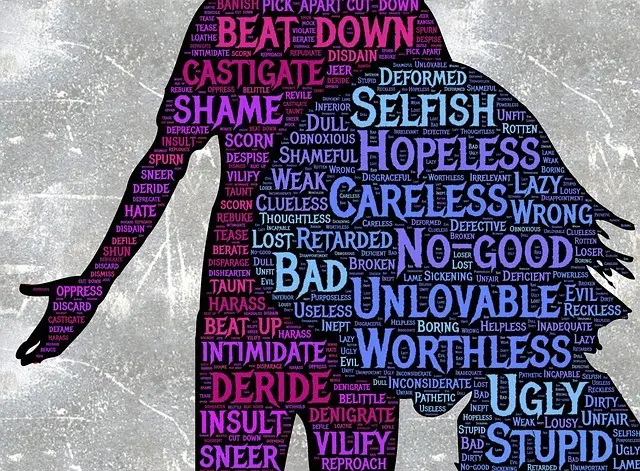I am ‘Worthless’
Children of narcissists will often have lots of feelings of guilt and shame. Shame can often ‘stick like glue’. Narcissists shame their children constantly (both as a means of control and because they are projecting their own feelings of shame onto their children) and this will be carried into adulthood and will often manifest as feelings of the self being worthless or inherently defective. Shame can be felt by children as young as 15 months old.
Shame is a feeling which can become a belief system. Infants and children make meaning from their emotions and their bodily sensations and will later, after developing language, attach words to explain those feelings. Uncomfortable and shameful feelings may be explained by thoughts of ‘I am stupid’ or ‘I am worthless’ etc.
Chronic shame is a procedurally learned response (see The Brain and Trauma). It can be triggered by events in the environment (see Triggers and Triggering) and can invoke feelings of not being safe and feelings of wanting to hide or isolate. Shame can manifest as feelings of sickness, wanting to curl into a ball or negative thoughts. Shame is an intense feeling of being unworthy, flawed and defective.
The body language of shame is very submissive with the head down, averted eyes and shoulders rounded. This has been learned as it can often diffuse a situation as it is an appeasing behaviour. If the body language is not submissive that may provoke more abuse.
Shame is a survival response on a par with fight, flight, freeze and submit and is often reinforced by ways of thinking such as ‘It is not safe to succeed, be happy, be assertive or have needs.’
To combat shame, we can develop our self-awareness around it. When we notice we are having self-shaming thoughts we can just become curious about what we are thinking and what the trigger for those thoughts may have been. We can notice our body language and posture, facial expression, what emotional state we are feeling and what thoughts are coming up. We can try experiments such as lifting up our head if our head is down or putting our shoulders back if they are rounded and we can practice challenging our shame. We can think about how the emotion of shame helped us survive our childhood and thereby reframe its roots and purpose. We can remind ourselves that it is just a triggered body response, which is part of our defences and it is not ‘us’. We can also work on our self-compassion.
Shame is an adaptive response to a hostile environment in childhood that becomes ingrained but with work, shame can be overcome.
shame
"When a relationship of dominance and subordination has been established, feelings of humiliation. degradation and shame are central to the victim's experience. Shame, like anxiety, functions as a signal of danger, in this case interpersonal or social danger. Like anxiety, it is an intense overwhelming affect associated with autonomic nervous system activation, inability to think clearly, and desire to hide or flee." Judith Herman, 2006




